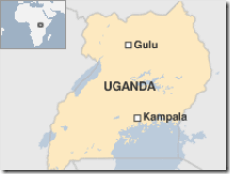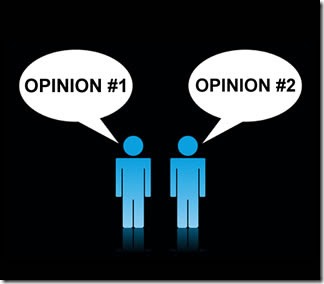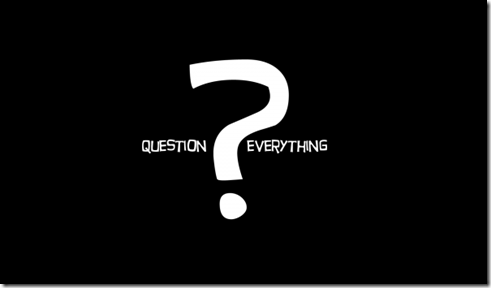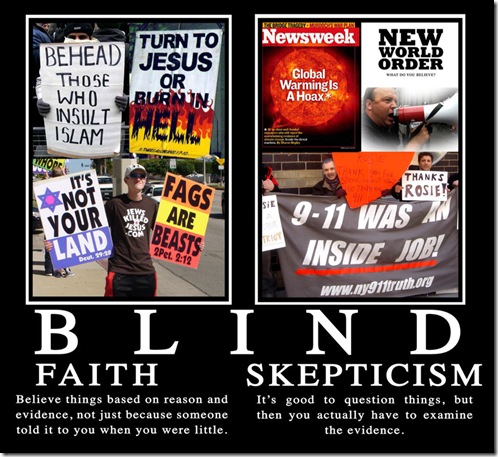You are currently browsing the category archive for the ‘Critical Thinking’ category.
Humanist Empowerment of Livelihoods in Uganda (HELU) is a new humanist
organisation registered as a Community Based Organization (CBO).
 HELU will officially be launched in Gulu on Saturday, 29th September 2012 at Gulu Taks Center (located behind Acholi Inn Hotel).
HELU will officially be launched in Gulu on Saturday, 29th September 2012 at Gulu Taks Center (located behind Acholi Inn Hotel).
The theme of this event is going to be “Empowerment through Humanism” and I will be delivering a talk titled Reason, Experience, Rational and Critical Thinking.
[L.C = Local Council, R.D.C = Resident District Commissioner, UHASSO = Uganda Humanist Association]
During the first discussion, we explored the open source movement going on all around the world in which people are agreeing to collaborate on any project; software or hardware, share information, designs, source code, blue prints, etc, in order to achieve the common good and/or make some money along the way. We saw that these technologies are being applied in every field from computer operating systems to building cook stoves and tractors.
What some of us are really interested in is how we too can get started so we can we be apart of this open source movement. The technology is available, its low cost, information is largely available, collaborators are all around us even across the world, and most importantly there is the need for us to get together so we can do something practical for the common good.
In this discussion I hope to present an analysis of the fastest growing open technologies pointing towards mobile devices, mobility and connectivity and how they give us an opportunity to get started.
Presented by: Yusuf Mulinya
The August 2012 Freethinkers’ Night will take place on Thursday, 30th August, at SPICE GARDEN (formerly 4 Points Bar & Restaurant ), Centenary Park, Kampala, starting 6PM. Entrance is FREE.
If you are an open minded person whose opinions are formed on the basis of science, logic, and reason and are interested in meeting like-minded individuals – you are more than welcome to join us.
You visit a pub, office, online forum, or go to a party somewhere with lots of interesting people. Or maybe you have been invited to participate in a discussion on radio or television over a particular issue. Maybe you are at a meeting where the goal is to exchange ideas with different people and challenge each other with regards to certain issues.
You encounter someone who does not agree with your views.
You have reasons to believe you are right, and that the other person is wrong.
The other person feels exactly the same way, and thinks YOU are wrong.
The good thing is, that person is willing to sit down and have a discussion or engage in a debate about this with you.
How should you both proceed in order for that discussion or debate to be constructive?
There are many different types of formal approaches to debate in existence. What we are interested in discussing is what you would need to do to have a friendly, productive, debate or discussion with someone you might encounter in a more informal setting.
Of course, there’s no reason why some of what we’ll learn can’t be applied in a formal setting too.
The July 2012 Freethinkers’ Night will take place on Thursday, 26th July, at SPICE GARDEN (formerly 4 Points Bar & Restaurant ), Centenary Park, Kampala, starting 6PM. Entrance is FREE.
If you are an open minded person whose opinions are formed on the basis of science, logic, and reason and are interested in meeting like-minded individuals – you are more than welcome to join us.
Related post:
[Source: http://atheismresource.com/wp-content/uploads/Debate-Flow-Chart.jpg]
The above is a guide for atheists who wish to debate Christians. It essentially lays at the rules of discourse that the Christian should be willing adhere to if he wishes to debate the atheist on the topic of religion, or ‘God’, presumably.
It should be noted that one can easily substitute ‘Christian’ with the holder of any ideological view point, philosophical stance or epistemic position, and this debate scheme would still be just as useful.
In fact, it would also be useful as a guide for Christians debating atheists.
I think everyone, regardless of where they stand on whatever issue, should be willing to engage in a civil debate. Because we are all human and prone to the same biases, no camp has the monopoly on good reasoning; not even those who describe themselves as freethinkers.
It is by recognising our inherent proclivity to succumb to these biases, and taking the effort to minimise the degree to which they can influence our thinking, that we can have a proper debate with another person.
Following the above guide can help you have a focused discussion with another person. It will also let you know before hand whether or not you’re probably better off not even bothering to debate that person in the first place – because failure to abide by the rules of discourse suggested in the above guide will almost always guarantee you going round in circles with that person and accomplishing nothing.
Good luck!
![]()
Skepticism generally refers to :
…any questioning attitude towards knowledge, facts, or opinions/beliefs stated as facts, or doubt regarding claims that are taken for granted elsewhere.
There are many things we are told we should not question. Many religious, cultural beliefs fall in this category of things for which questions must be never asked. There are also all kinds of social and economic ideologies that are taken for granted. Other times we believe things for the simple reason that a lot of people seem to believe it.
This month, we’d once again like to take a look at some of the things we think we should all be more vigilant in asking questions about – and how to go about asking those questions in such a way that we can be fairly confident that we have arrived at the correct conclusion.
Might there be limits on how skeptical we should get?
Can one be skeptical of skepticism itself?
Come join the discussion!
The April 2012 Freethinkers’ Night will take place on Thursday, 26th April, at 4 Points Bar & Restaurant, Centenary Park, Kampala, starting 6PM.
Entrance is FREE.
If you are an open minded person whose opinions are formed on the basis of science, logic, and reason and are interested in meeting like-minded individuals – you are more than welcome to join us.
 Many of us understand the importance of thinking things through when it comes to forming beliefs about how best to deal with different aspects of our lives, such as when it comes to making important decisions.
Many of us understand the importance of thinking things through when it comes to forming beliefs about how best to deal with different aspects of our lives, such as when it comes to making important decisions.
Examples:
-
Should I invest in this business scheme?
-
Should I buy this car?
-
Should I vote for this politician?
-
Should I try this herbal treatment for my illness?
-
Should I pray for a miracle?
Still, we often make bad decisions. Why?
It could be because there are roadblocks we’ve erected in our minds that prevent us from examining all the evidence objectively, or impartially, prior to forming beliefs. These mental roadblocks might be pre-existing beliefs that have been informed by culture, religion, political/social ideologies, personal prejudices, peer pressure, etc.
 Having these mental roadblocks is one problem; the other problem is not knowing that you have those mental roadblocks. But perhaps the worst problem of all is not acknowledging that as human beings all of us are susceptible to having these mental roadblocks, at any given time. Acknowledging this should compel us to structure our thinking in such a way as to minimise, as much as possible, the degree to which these mental roadblocks might impede our ability to think objectively.
Having these mental roadblocks is one problem; the other problem is not knowing that you have those mental roadblocks. But perhaps the worst problem of all is not acknowledging that as human beings all of us are susceptible to having these mental roadblocks, at any given time. Acknowledging this should compel us to structure our thinking in such a way as to minimise, as much as possible, the degree to which these mental roadblocks might impede our ability to think objectively.
We should be willing to evaluate all kinds of information, including information that might go against what we currently believe about something, without allowing our mental roadblocks to interfere with that evaluation process. We also need to train ourselves to be able to use logic effectively – and to consistently use it when trying to make inferences about what it is we are forming beliefs about. We must also question our methods of reasoning. This, in a nutshell, is what it means to think critically.
Edward M. Glaser in his 1941 book “An Experiment in the Development of Critical Thinking” describes critical thinking as:
A persistent effort to examine any belief or supposed form of knowledge in the light of the evidence that supports it and the further conclusions to which it tends.
Youtuber Qualia Soup explains what critical thinking is in this video:
As a freethinker, I advocate for the application of critical thinking across the board, on all issues, and I also encourage people to be consistent in their application of it. Indeed, I often have to remind myself to be consistent as well, because I know that mental roadblocks can pop up anytime, and unbeknownst to me, some might already be lurking about in my mind.
It is not easy to consistently apply critical thinking – but there is great value in striving to be as consistent as is humanly possible in our application of it.
THE DISCUSSION
In a world where all kinds of people are offering all kinds of get-rich-quick schemes or miracle cures for all kinds of ailments, it greatly helps to be a critical thinker. A person who applies critical thinking will be less likely to lose money to professional con-artists or fall prey to medical quackery. He or she will also be able to do a better job of analyzing problems and finding solutions to them. People who think critically will probably make better business/investment decisions as well, as compared to people who don’t.
From a social perspective, a good critical thinker is also less likely to hold prejudices that would prompt him or her to discriminate against people on the basis of race, tribe, ethnicity, gender, or sexual orientation. He or she will also be less likely to engage in extreme forms of religious expression that are detrimental to their well-being, and the well-being of others.
What we’d like to discuss at the upcoming Freethinkers’ Night is HOW to communicate CRITICAL THINKING to the general public.
How do we encourage people to apply critical thinking, and to apply it consistently, in their lives? How do we get people to recognize that their mental roadblocks might be preventing them from thinking objectively?
Let’s discuss.
This is a crucial issue for us, as it touches on what we consider to be our mandate as Freethought Kampala, which is:
Promoting Reason in a Highly Superstitious Society
Much of our focus for the last two years has been mainly to apply critical thinking in the evaluation of popular mystical/religious claims that abound in this country’s spiritual landscape – because there was simply nobody doing it. We acknowledge that the scope for critical thinking is much wider than this, but for strategic reasons we initially chose to narrow our focus to an area that we felt was being completely neglected in the national discourse. Perhaps at this meeting we might also talk about this focus, and whether or not we should broaden it.
The January 2012 Freethinkers’ Night will take place on Thursday, 26th January, at 4 Points Bar & Restaurant, Centenary Park, Kampala, starting 6PM. Entrance is FREE.
If you are an open minded person whose opinions are formed on the basis of science, logic, and reason and are interested in meeting like-minded individuals – you are more than welcome to join us.
Oh, and we’ll also be marking 2 years of Freethought Kampala as well!
Let’s say I tell you that I believe in the existence of the Super Invisible Immaterial Dancing Elephant.
You ask me to define this being, and I tell you that it is…
"…an elephant who was not created by anything and whose non-existence is logically impossible".
Then you ask me how it is that I know anything about the Super Invisible Immaterial Dancing Elephant. I respond:
“It communicates with me through the voice of my inner spirit, and tells me all about itself”
Now, when you ask me who made this Super Invisible Immaterial Dancing Elephant, or how it came to exist, I say to you:
"To ask what made the Super Invisible Immaterial Dancing Elephant is a nonsense question. I already told you that the Super Invisible Immaterial Dancing Elephant is an elephant who was not created and whose non-existence is logically impossible. To ask what made the Super Invisible Immaterial Dancing Elephant demonstrates that you don’t understand what the Super Invisible Immaterial Dancing Elephant is! If it had to be created, then it would not be the Super Invisible Immaterial Dancing Elephant. Duh!"
At first glance, it seems as if I would be justified in raising such an objection. If I DEFINE this being as one that was not created, and whose non existence is logically impossible, then to ask where it came from, what created it, or to even ask for evidence of its existence seems meaningless and self-refuting.
But I’m sure this won’t convince you that the Super Invisible Immaterial Dancing Elephant exists. Will it? And if not, why not?
Simple.
It is because I have merely defined the Super Invisible Immaterial Dancing Elephant into existence i.e. I have implied its necessary existence in its definition only, and not demonstrated it. Such an approach is flawed because it can be used to justify belief in the existence all manner of imaginary things, such as mermaids, unicorns, goblins, our dear Super Invisible Immaterial Dancing Elephant…
…and gods.
Indeed, the answers I gave in response to questions raised about the Super Invisible Immaterial Dancing Elephant are the kinds of answers many believers give in response to similar questions about the existence of a ‘God’. But if those answers are not sufficient to render a belief in the existence of the Super Invisible Immaterial Dancing Elephant reasonable, there is not reason why we should assume they hold as reasons to believe in the existence of a ‘God’ either.
See also:
The article “A rational approach to the primary school ‘demon’ crisis,” was published in the Sunday Monitor Newspaper of April 17th 2011:
 (click on image to view larger readable version)
(click on image to view larger readable version)
It is the short, modified version of my earlier blog post WOO TAKEDOWN #03 – ‘Demonic Attacks’ in Ugandan Primary Schools.
Thanks to Sunday Monitor for its continuous support of science and critical thinking in the Ugandan media!
The above article seems to have suffered under the editor’s knife, and thus it appears disjointed in some places. Here is the article in its original form, as was initially sent to the editor:
A nice response in the comments section of the article " As I didn’t say to the archbishop" appearing the Guardian online:
For as long as people feel the need to believe in a crutch, there will be those out there who don’t; that those who don’t no longer have to fear retribution, persecution and blackballing for our views is a good thing. If you’re unhappy that we find your ideas so contemptible, find new ideas, or accept that your ideas will be open to ridicule.Ideas are not sacred and should be open to as much opposition, as much derision and as much praise as is possible. If they stand up to reason – which, invariably, religion[s] does not – then they deserve to be taken seriously.
[by: dollishillbilly]
Indeed, ideas are not sacred… and should be open to as much opposition, as much derision and as much praise as is possible. All that matters is whether or not they stand up to reason- not how deeply people cherish them.
Related Posts:












Recent Comments